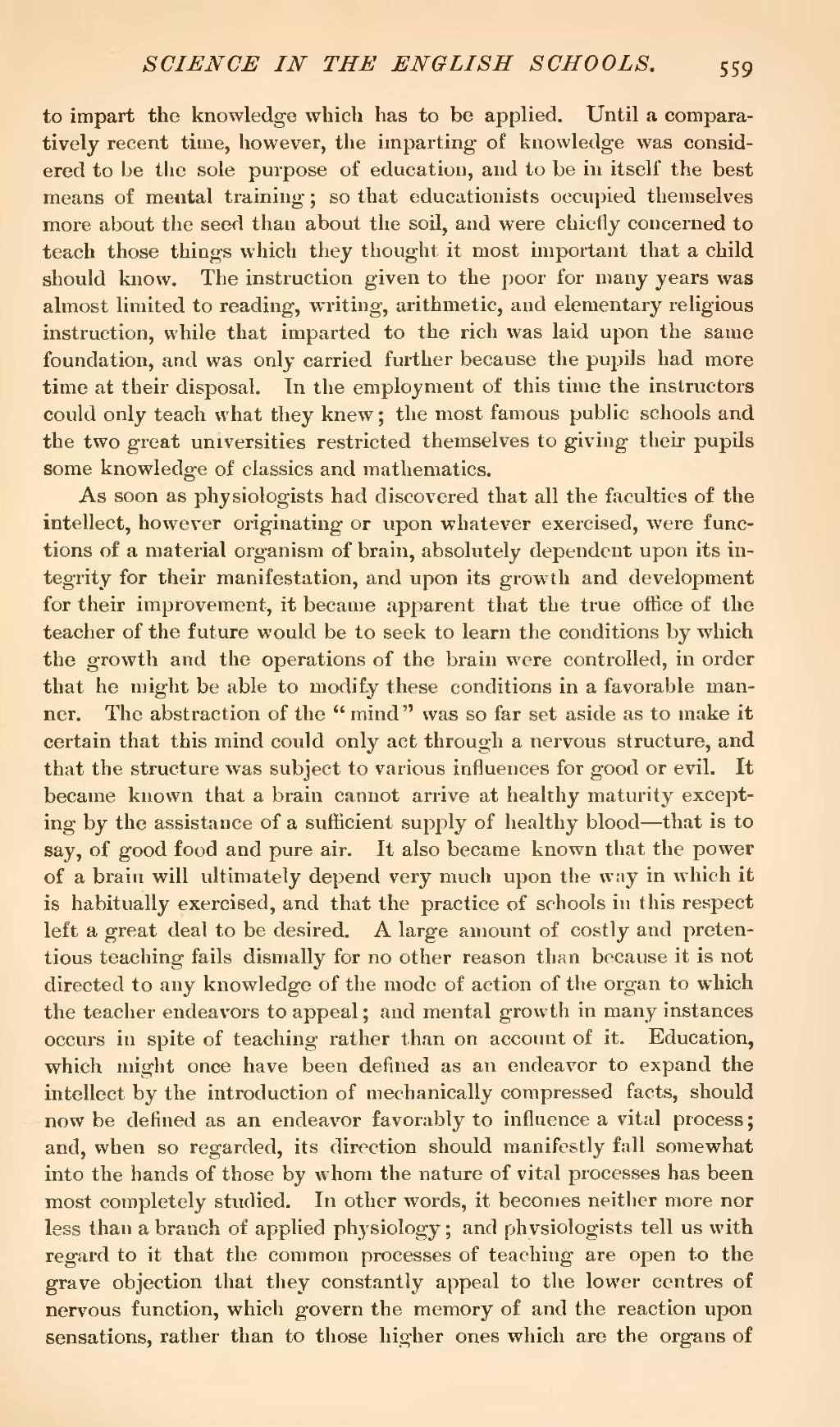to impart the knowledge which has to be applied. Until a comparatively recent time, however, the imparting of knowledge was considered to be the sole purpose of education, and to be in itself the best means of mental training; so that educationists occupied themselves more about the seed than about the soil, and were chiefly concerned to teach those things which they thought it most important that a child should know. The instruction given to the poor for many years was almost limited to reading, writing, arithmetic, and elementary religious instruction, while that imparted to the rich was laid upon the same foundation, and was only carried further because the pupils had more time at their disposal. In the employment of this time the instructors could only teach what they knew; the most famous public schools and the two great universities restricted themselves to giving their pupils some knowledge of classics and mathematics.
As soon as physiologists had discovered that all the faculties of the intellect, however originating or upon whatever exercised, were functions of a material organism of brain, absolutely dependent upon its integrity for their manifestation, and upon its growth and development for their improvement, it became apparent that the true office of the teacher of the future would be to seek to learn the conditions by which the growth and the operations of the brain were controlled, in order that he might be able to modify these conditions in a favorable manner. The abstraction of the "mind" was so far set aside as to make it certain that this mind could only act through a nervous structure, and that the structure was subject to various influences for good or evil. It became known that a brain cannot arrive at healthy maturity excepting by the assistance of a sufficient supply of healthy blood—that is to say, of good food and pure air. It also became known that the power of a brain will ultimately depend very much upon the way in which it is habitually exercised, and that the practice of schools in this respect left a great deal to be desired. A large amount of costly and pretentious teaching fails dismally for no other reason than because it is not directed to any knowledge of the mode of action of the organ to which the teacher endeavors to appeal; and mental growth in many instances occurs in spite of teaching rather than on account of it. Education, which might once have been defined as an endeavor to expand the intellect by the introduction of mechanically compressed facts, should now be defined as an endeavor favorably to influence a vital process; and, when so regarded, its direction should manifestly fall somewhat into the hands of those by whom the nature of vital processes has been most completely studied. In other words, it becomes neither more nor less than a branch of applied physiology; and physiologists tell us with regard to it that the common processes of teaching are open to the grave objection that they constantly appeal to the lower centres of nervous function, which govern the memory of and the reaction upon sensations, rather than to those higher ones which are the organs of
